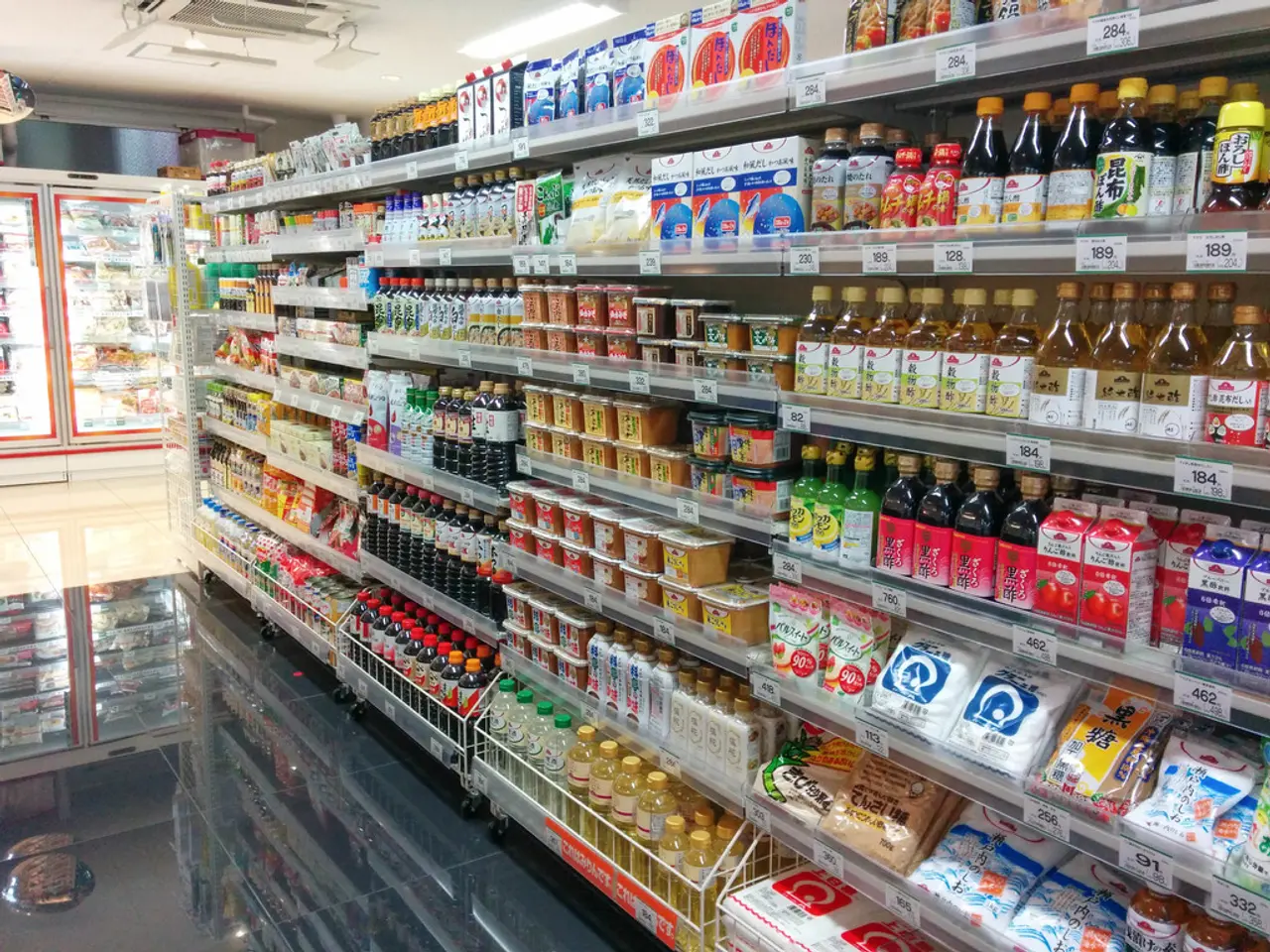Stock Market Magnates Face Trump's Test on Tariff Threats
====================================================================
In recent months, investors have taken on the "TACO" trade, betting on President Trump's tendency to renegotiate rather than escalate trade conflicts. However, the latest round of tariffs has raised concerns about the impact on the US economy and the stock market.
The current impact of these tariffs is evident in increased costs for households and businesses, particularly in California. The average US household is predicted to face an extra $2,400 in costs by 2025, while California firms have already incurred $11.3 billion in tariff costs from January to May 2025, resulting in about 64,000 job losses statewide and $25 billion in costs for families and workers.
Economic growth projections have weakened substantially, with GDP growth estimates dropping from 2.8% in 2024 to 1.4% for 2025 due to tariffs and related trade issues. Supply chains remain disrupted, with the Port of Los Angeles operating at only 70% capacity and a significant 40% decline in Southern California trade and logistics job postings.
Inflation has been suppressed temporarily by stockpiling and retailers absorbing costs, but economists predict that when inventory stocks run out, costs will be passed on to consumers, leading to more pronounced price increases later in 2025. Legal challenges, such as California's lawsuit arguing that Trump lacks authority to impose tariffs unilaterally, have also arisen, highlighting political and economic tensions around the policy.
Some commentary suggests that tariffs may cause longer-term harm to US economic competitiveness and international relations, straining alliances while benefiting adversaries, and complicating recovery efforts post-Biden administration policies.
Despite these challenges, trading partners have not retaliated, avoiding a global trade war. The inclusion of carveouts has softened the blow of tariffs, according to Kurt Reiman, head of fixed income at UBS. Investors are maintaining faith in a "Trump put," a notion that President Trump will refine his approach if the markets do plummet.
However, companies trying to make business plans cannot afford to ignore tariffs, according to Ethan Harris. The stock market and the economy are not the same thing, he emphasises. Stocks still closed higher on the week, with the Nasdaq hitting a record high on Friday and the S&P 500 notching its best week in over one month.
Enthusiasm about the AI boom in the United States is driving market momentum. Ethan Harris, former head of global economics at Bank of America, stated that Trump is succeeding in implementing major tariffs without shocking the stock market. It remains to be seen if investors will stay complacent as tariff effects could take weeks or months to play out. Markets are a "little too complacent," according to Arun Sai, and he will be watching the next two inflation reports for any sign of tariff-induced increases in prices.
In summary, Trump's tariffs currently contribute to higher costs for consumers and businesses, job losses, and slower economic growth. The future effects are likely to amplify inflation, economic disruption, and trade tensions. However, the absence of retaliation from trading partners and the inclusion of carveouts have softened the impact, and investors are maintaining faith in a "Trump put." Companies and investors must remain vigilant as the effects of tariffs continue to unfold.
[1] [Source 1] [2] [Source 2] [3] [Source 3]
- businesses are closely monitoring the impact of tariffs on their financial conditions, as the additional costs have already led to job losses and are predicted to amplify inflation and economic disruption.
- some investors are still betting on a "Trump put," but the long-term financial ramifications, such as the potential harm to US economic competitiveness and international relations, are causing concern in the investing community.




